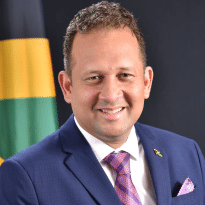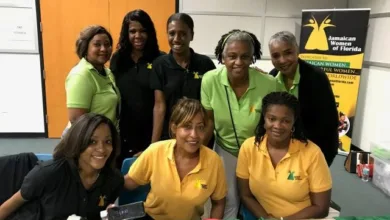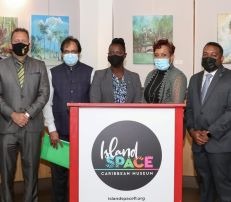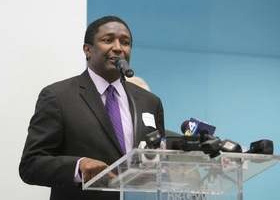“Jamaican Diaspora being Negatively Stereotyped,” delegates
OCHO RIOS, Jamaica – The perceived stereotyping of Jamaicans during immigration searches, visa restrictions, and deportation were some of the issues raised by delegates in the United Kingdom (UK) Caucus Session, at the fourth biennial Jamaican Diaspora Convention 2011, in Ocho Rios, St. Ann, recently.
Venessa McLean, who resides in the UK, said she felt that Jamaicans travelling to the UK were stereotyped as being drug traffickers. “It then becomes a stereotyping of Jamaicans, and the dogs attack us when we get off the plane,” she related, and revealed that a colleague was searched for three hours by immigration.
Pointing out that, “Not all of us carry drugs and weed, but there is this perception that we are drug dealers and dons,” she asked representatives of the British High Commission, “What is the UK Government going to do about that stereotype, because it is not true?”
The British High Commissioner, Howard Drake denied that there was such a stereotype of Jamaicans. “I’m not familiar with that case; but, in respect of your broader point, it is not true that there is that kind of stereotype, I’m sorry, but I don’t agree with you,” he said.
McLean rebutted, “Every time I produce my Jamaican passport (when travelling), I’m heavily searched, and other people with other types of passports just go through. Why am I always being singled out? I’m not going to lose my Jamaican passport and my identity for anyone.”
Senator Malahoo-Forte, State Minister in the
Ministry of Foreign Affairs and Foreign Trade pointed out that not all the problems would be solved in one caucus; but, she was confident that the British Government is willing to work with Jamaicans to resolve the issues.
“I know the British High Commissioner is committed to being part of the positive partnership,” she said, “There are a lot of issues that we have to work through, and certainly taking care of the interests of Jamaicans is primarily for me, therefore, we are seeking clarity in the policies and better understanding of our relationships.”
The 2003 imposition of a visa regime for Jamaicans travelling to the UK also came to the fore with Jamaican delegates questioning–why as a Commonwealth country and a former British colony, Jamaicans have to apply for a visa to
visit that country?
Oral, a delegate from the UK, said the system has only served to disenfranchise Jamaicans travelling to the UK. He pointed out that the UK was part of our history; and said that the visa process and the cost of the visa were discouraging.
“If it (the visa requirement) is based on the fact that some Jamaicans are exporting drugs to the UK, I think that is wrong,” he argued.
However, the High Commissioner explained that the visa regime was imposed because there were significant criminal links between the UK and Jamaica; and that real damage was being done to the UK by this criminal minority elements.
“One of the implications of the impact of the visa regime is that… if you look at the number of Jamaicans who were in prison in the UK before the visa regime came in and what it is today, it is down by almost two-thirds. I think that is quite telling,” he said, pointing out, at the same time, that majority of Jamaicans are law abiding citizens.
He said the UK Government was focusing on improving the visa services to Jamaicans who want to enter that country legitimately.
Meanwhile, on the issue of deportation, delegates pointed out that: A broad brush approach was being used to label all persons as criminals, who are sent back home from the UK, although they were not involved in any criminal activity.
Steve Burns, First Secretary, with responsibility for Migration at the British High Commission in Kingston, agreed that there is a stigma associated with persons who are forced to return; but, not necessarily related to crime. He said the British Government was working with the Jamaican Government on rehabilitation and re-integration projects, to help those who have been affected to re-settle in Jamaica.
“We put a lot of money, and a lot of effort in actually helping the people when they are removed, to settle back here in a dignified way,” Mr. Burns said.
Meanwhile, members of the Caribbean Community in the UK are getting the opportunity to share their views on pertinent issues affecting them in the UK during four segments of the Caribbean Question Forums, which are being held June 19 to 26 in the UK.
The forums, sponsored by Jamaica National Building Society, affords members of the Diaspora community the opportunity to discuss is¬sues that impact them and their communities with key de¬cision makers who can influence the outcomes. Among the topics to be discussed are: education, economics -UK budget, religion and community development.




